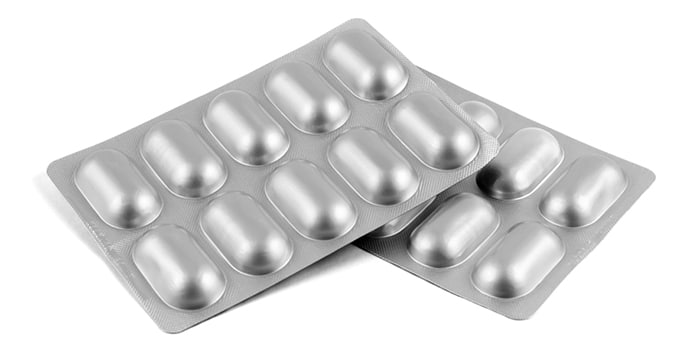Cetirizine is a drug used in the treatment of allergic reactions and chronic hives of unknown origin, affecting, especially the upper respiratory tract. It helps relieve symptoms of allergic rhinitis such as runny nose, sneezing, watery eye and itching, and symptoms of hives such as skin redness and itching. It is available in syrup and tablet forms. It is not suitable for prolonged usage. Tiredness, headache, dry mouth, and nausea are the most common side effects. It may be inconvenient to take with alcohol or sedatives. Dose should be adjusted carefully especially when administered to children.
Table of Contents
What is Cetirizine?
Cetirizine is a prescription drug used in the treatments of allergic rhinitis, chronic hives of unkown origin, and itching. The active ingredient is cetirizine dihydrochloride. It is available in syrup and tablet forms. Syrup form is suitable for use in adults and children aged ≥2 years. Tablet form cannot be administered to children below 6 years old. (1)
What is Cetirizine used for?
Cetirizine is used in the treatments of symptoms of allergic rhinitis (hay fever) and chronic idiopatic urticaria (hives of unkown origin). (2) Main symptoms treated with medicine are:
- Runny nose
- Red, watery and itchy eyes
- Itchy nose or throat
- Redness, swelling, and itching of the skin
How to use Cetirizine?
- Take the medicine at the same time every day. You can drink it on an empty or full stomach.
- Take Cetirizine as prescribed by your doctor, do not adjust the dose without informing your doctor.
- If you forget to take a dose, if there is much time to other dose, you can take it upon remembering. Never double the dose.
- Do not discontinue treatment without your doctor’s knowledge, even if you feel well.
- If your symptoms do not relieve or get worse within 3 days, consult your doctor.
Cetirizine Doses and Dose Adjustment
Doses of syrup and tablet forms of the medicine are: (3)
Syrup form:
- 2 to 6 years old: Recommended dose is 2.5 mg (half a spoon) once a day. In severe cases, it can be increased to 5 mg a day.
- 6 to 12 years old: 5 mg (full spoon) once a day or 10 mg (two full spoons) divided into 2 dose once a day.
- Children aged ≥ 12 years and adults: 5 mg once a day (full spoon) or 10 mg (two full spoons) divided into 2 once a day in severe cases.
Tablet form
Children aged ≥ 6 years and adults: Recommended dose is 5 mg (1/2 tablet) once a day. However, if symptoms are severe, it can be increased to 10 mg (1 tablet).
Cetirizine overdose
If you take the medicine at higher dose level than prescriped, you may experience side effects such as confusion, restlessness, lethargy, diarrhea, arrhythmia, and dyspnea. In such cases, try to vomit (make your child vomit if s/he takes it) and apply to the closest healthcare provider.
What should be considered while taking Cetirizine?
- If you need an allergy test, be sure to inform your doctor. You may need to discontinue the medication a few days before a test, as the medicine may affect test results.
- The medicine may negatively affect your reflexes. Avoid driving or using machines, especially if you take an antidepressant or a sedative concurrently with the medicine.
- Do not drink alcohol with the medicine.
- The medicine contains sodium acetate. Consider this if you are on a controlled sodium diet.
Cetirizine drug interactions
There is no known scientific evidence that Cetirizine interacts with other medicines. However, if you are taking a medicine or supplement, inform your doctor.
Cetirizine Forms and Types
- Cetirizine Hydrochloride Syrup 1 mg/ml: One bottle contains 200 ml of colorless, clear-looking syrup, and each 1 ml of the syrup contains 1 mg of cetirizine dihydrochloride.
- Cetirizine 10 mg film-coated tablet: Available in packages of 10, 20 and 30 tablets. Each tablet contains 10 mg cetirizine dihydrochloride
Cetirizine similar drugs
Alatrol, Alerid, Allegra, Alzene, Cetzine, Cetgel, Cirrus, Okacet, Reactine, Razene, Rigix, Zetop, Zodac and Zyrtec.
Who should not take Cetirizine?
- Those who are allergic to the active ingredient, Cetirizine, or excipients
- Patients with acute renal failure
- Children under the age of 2.
In which situations is Cetirizine inconvenient?
You should take Cetirizine with caution if you have one of the following health conditions:
- Any drug allergy
- Urination problems caused by any conditions
- Allergy to E218 or E216 food additives
- Lactose or sorbitol intolerance
- Liver or renal failure
- Epilepsy
Use of Cetirizine during Breastfeeding and Pregnancy
If it must be taken during pregnancy and breastfeeding, it should be taken as instructed by the doctor. (4)
Side effects of Cetirizine
Common Side Effects
- Drowsiness and tiredness
- Headache
- Dry mouth
- Nausea
- Dizziness
- Abdominal pain
- Diarrhea
- Sore throat
- Symptomes of common cold
- Itching or rash
- Tingling feeling in hands and feet
- Tension
Symptoms of diarrhea and common cold may be seen more in children compared to adults.
Rare Side Effects
Serious side effects may rarely occur during Cetirizine treatment. The most dangerous condition is anaphylaxis. If you experience any of the following situations, immediately apply to an emergency:
- Skin rash with itching, redness, swelling, blistering, or peeling
- Wheezing
- Tightness in the chest or throat,
- Difficulty in breathing or speaking,
- Swelling in the mouth, face, lips, tongue, or throat
Cetirizine prescription
For more detailed information about Cetirizine 10 mg tablet, you can access prescription and package insert via this link via this link: >>>




